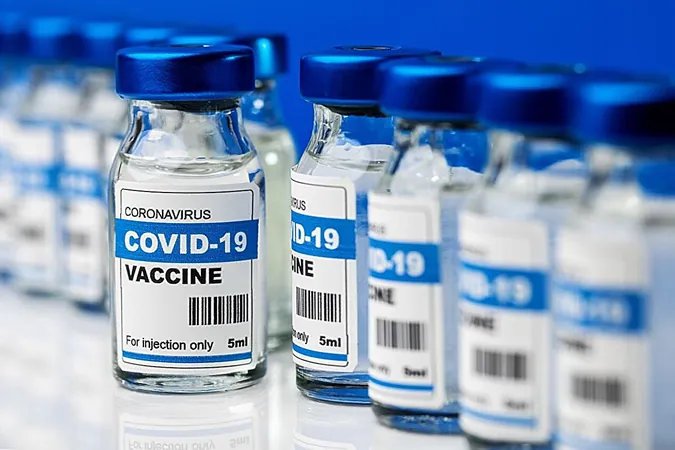
Shocking Study Reveals: Vaccination Might Not Protect Against Long COVID Neurological Symptoms!
2025-01-15
Author: Li
A groundbreaking study has unveiled startling findings regarding the impacts of COVID-19 vaccination on neurological symptoms following infection. Researchers from Northwestern University Feinberg School of Medicine have discovered that receiving the vaccine prior to contracting COVID-19 does not significantly alter neurological symptoms in patients suffering from post-acute sequelae of SARS-CoV-2 infection, commonly referred to as neuro-PASC.
The study, published in the journal Brain Communications on January 7, analyzed data gathered from 1,300 patients who experienced long-term neurological effects related to COVID-19 between May 2020 and January 2023. Among these, 200 patients were severely affected and hospitalized, while 1,100 patients reported symptoms without hospitalization.
The results were eye-opening. A staggering 87% of hospitalized patients (PNP) had contracted the virus before being vaccinated, and 70.7% of non-hospitalized patients (NNP) reported a similar situation. Interestingly, those who experienced breakthrough infections showed increased reports of pre-existing mental health conditions like depression and anxiety.
Looking closer at the neurological impacts, the study revealed that the most common symptoms for PNP patients included brain fog (affecting 86.5%), numbness and tingling (56.5%), and headaches (56.5%)—with these symptoms persisting an average of 10 months after the initial infection. Among breakthrough infection cases, anosmia, or loss of smell, was more prevalent, adding another troubling dimension to post-COVID health.
Meanwhile, NNP patients also reported significant neurological symptoms, albeit with a slightly different profile. Brain fog (83.9%), headaches (70.9%), and dizziness (53.8%) ranked high among their experienced effects. Notably, those who were infected before vaccination experienced higher rates of anosmia (56.6%) and dysgeusia (altered taste) compared to those who had breakthrough infections. Conversely, breakthrough cases showed more pronounced dizziness (61.5%).
The study further emphasized that both categories of patients exhibited impaired quality of life across various domains, including cognitive abilities, fatigue, sleep disturbances, anxiety, and depression. Importantly, there was no marked difference in these impairments based on whether symptoms arose after vaccination or not.
In conclusion, this revealing research indicates that for patients already suffering from neuro-PASC, the timing of their COVID-19 infection relative to vaccination seems to have little effect on the severity or presence of neurological symptoms. As we continue to unravel the mysteries of long COVID, these findings could pivot conversations around vaccination efficacy and the need for enhanced treatment strategies for those afflicted by this debilitating condition.
Stay tuned for more insights as healthcare professionals and researchers dive deeper into the long-term effects of COVID-19 on neurological health!
 Brasil (PT)
Brasil (PT)
 Canada (EN)
Canada (EN)
 Chile (ES)
Chile (ES)
 Česko (CS)
Česko (CS)
 대한민국 (KO)
대한민국 (KO)
 España (ES)
España (ES)
 France (FR)
France (FR)
 Hong Kong (EN)
Hong Kong (EN)
 Italia (IT)
Italia (IT)
 日本 (JA)
日本 (JA)
 Magyarország (HU)
Magyarország (HU)
 Norge (NO)
Norge (NO)
 Polska (PL)
Polska (PL)
 Schweiz (DE)
Schweiz (DE)
 Singapore (EN)
Singapore (EN)
 Sverige (SV)
Sverige (SV)
 Suomi (FI)
Suomi (FI)
 Türkiye (TR)
Türkiye (TR)
 الإمارات العربية المتحدة (AR)
الإمارات العربية المتحدة (AR)